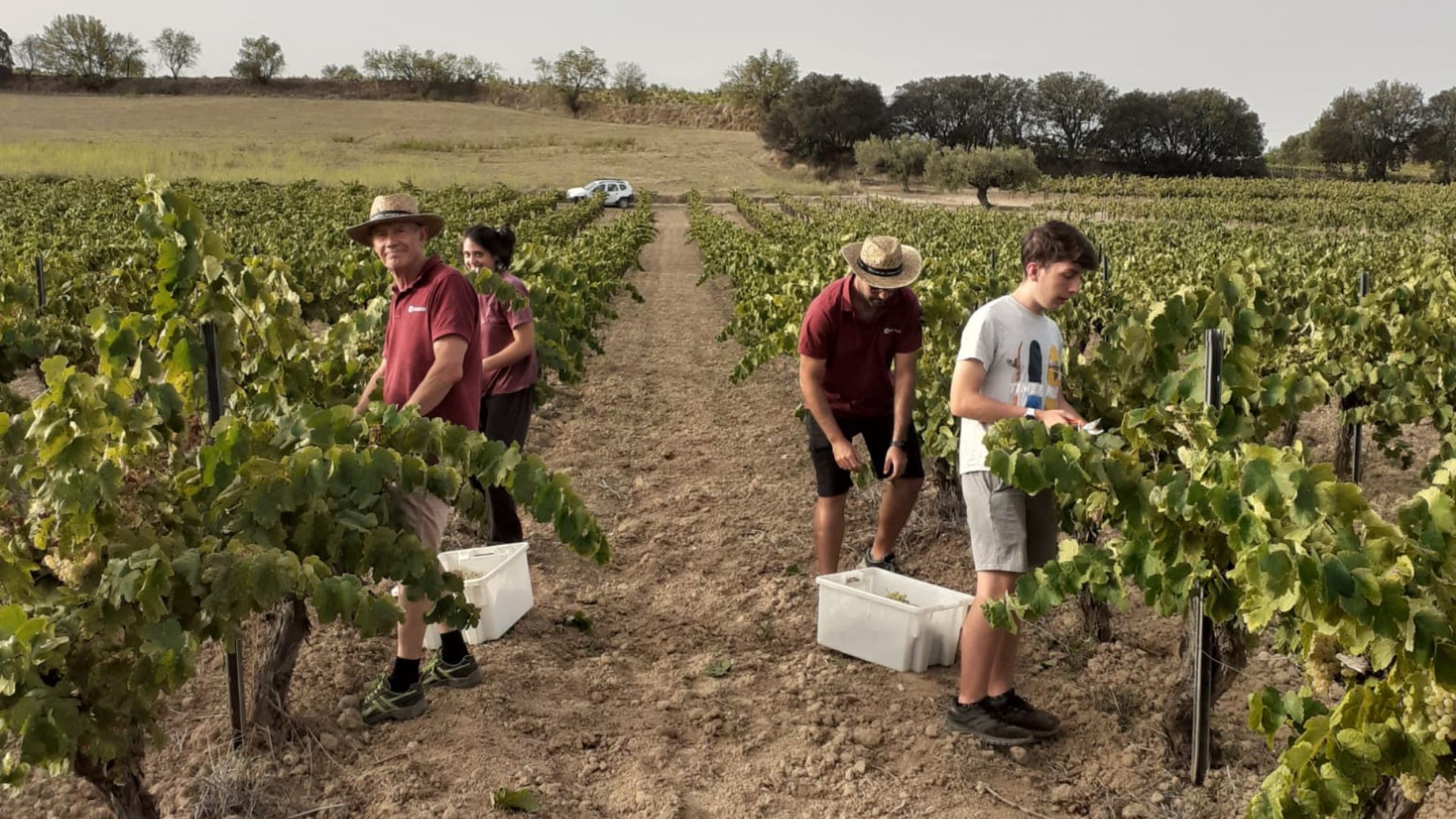Innovation projects to valorize livestock manure and make the wine sector more sustainable
The CT BETA of the UVic-UCC participates in three projects to produce biofertilizers for vineyards, with the aim of revaluing livestock manure and, at the same time, meet the growing demand for organic fertilizers in the wine sector.

For years people have been looking for ways to find an outlet for livestock manure in Catalonia, especially in regions with a high surplus, such as Osona. One way is to produce biofertilisers which, in turn, can be useful for the wine sector, especially in the Penedès area, which has a growing demand. Until now, vineyard fertilisation has been mainly chemical, but now organic fertilisation is increasingly being promoted, which allows the sector to be much more sustainable. For this reason, three projects are underway with the participation of CT BETA that aim to close the carbon cycle in this sector, using different technologies for the production of bio-based fertilisers.
Three technologies
The main technology applied in these projects is composting, which stabilises the organic matter in the excrement to obtain a high-quality, pathogen-free product. Bio-drying processes have also been optimised, which allows the moisture in the organic waste to be removed by mainly biological action, and a high quality fertiliser product is obtained, improving the management and logistical cost of the original excrement. Finally, anaerobic digestion, the process in which a bacterial community transforms organic matter into biogas, containing CO2 and methane. The solid organic fraction of the resulting digestate is made into pellets and the liquid fraction passes through a membrane system, which produces a nutrient-rich concentrate that is also used for fertiliser.
Three innovation projects with companies
Circular Bioeconomy, led by Juvé y Camps and coordinated by INNOVI, is the one that uses the three previous technologies: composting, bio-drying and anaerobic digestion. Five types of biofertilisers derived from livestock manure (pig, sheep and cattle) were produced and applied in the field during the 2022-2023 campaign. Three products were obtained from pig manure; a bio-drying (dry slurry) and a pellet from the solid fraction, and a concentrate from the liquid fraction. Two organic fertilisers suitable for organic farming were produced from sheep and cattle; a semi-composite product from sheep and a composite from cattle.
The next step will be to evaluate changes in the physical, chemical and quality properties of the soil down to 90 cm depth, as well as leaf growth, grape development, ripening and productivity over two growing cycles. INCAVI, la Cooperativa Agraria de Torelló, Betara, Selección Deseuras, Granjas Terragrisa and ADV Sant Martí-Penedès Superior are also participating.
BiofertiPlus develops tailor-made fertilisers (TMF) through composting for vine and apple crops, based on the soil characteristics and nutritional needs of the crops, providing nitrogen, phosphorus and potassium (NPK). A process of composting waste from a cow farm is optimised to produce high quality compost, to which a nitrogenous organic additive is added to create two TMFs. These are being tested in experimental fields to assess their agronomic performance and benefits on grape and apple quality, and a Life Cycle Analysis (LCA) is also being developed to assess their sustainability. Biofertiplus is led by the Federation of Agricultural Cooperatives of Catalonia, with the participation of Cooperativa Plana de Vic, Grans del Lluçanès, Covides and Girona Fruits.
Also led by the Federation of Agricultural Cooperatives of Catalonia and with the participation of Covides and Cevipe, the CoopVitiLoop project seeks to close the carbon cycle in the wine sector through the self-management of grape harvest waste (rapa and breeze) and sewage sludge in wineries, converting it into biofertiliser through composting. This mature compost is compared with commercial compost to demonstrate its quality, with the aim of using it on the cooperative’s fields to return carbon and nutrients to the soil and improve the sustainability of the sector. In addition, the project evaluates the impact of compost on the growth of two vine varieties (xarelo rosado and sauvignon blanc) and soil health, and studies the release of carbon and nitrogen to optimise their uptake by plants.
The three projects have been funded through Operation 16.01.01 (Cooperation for innovation) of the Catalonia Rural Development Programme 2014-2022, and allow progress towards the circular economy through the revalorisation of waste and the promotion of an increasingly sustainable wine sector. Therefore, according to the preliminary results obtained, it is expected to improve the organic fertilisation of the vineyards to improve soil health and ensure long-term productivity.
